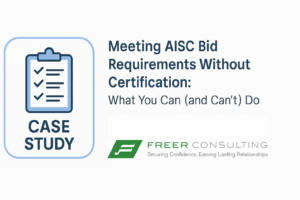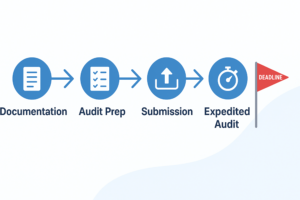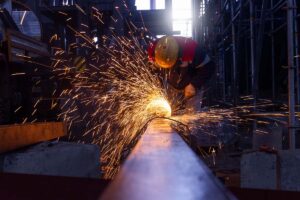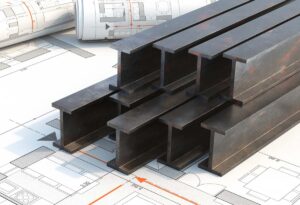International standards play a significant role in the maritime construction industry. Whether your company builds vessels, provides parts for vessels, or manages the construction of vessels, such standards likely guide your processes and deliverables, and often serve to meet the minimum requirements of your customers. What do you do when a customer provides technical specifications that require adherence to one or more standards? How do you apply these standards to your specific deliverable?
In a recent project, Freer Consulting assisted a maritime company that was building a fireboat for a major West Coast port. The port required dock and sea trial documentation (test procedures and data sheets) to test each component system and core function of the vessel (for example, main and auxiliary engines, electronic equipment, deck machinery, fire systems, etc). As part of this requirement, relevant information from component/system vendors, naval architects, and the following standards were to be incorporated:
• ISO 2923 Measurement of noise on board vessels
• ISO 6954 Guidelines for the measurement, reporting and evaluation of vibration with regard to habitability on passenger and merchant ships
• ISO 15016 Ships and marine technology – Guidelines for the assessment of speed and power performance by analysis of speed trial data
• ISO 19019 Sea-going vessels and marine technology – Instructions for planning, carrying out and reporting sea trials
• ISO 20283-2 Mechanical vibration – measurement of vibration on ships
• NFPA 1925 Standard on Marine Fire-Fighting Vessels
• SNAME Technical & Research Bulletin No. 3-47 (Guide for Sea Trials)
• SNAME Technical & Research Bulletin No. 3-39 (Guide for Shop and Installation Tests)
From these requirements, the team at Freer Consulting came up with a methodical approach to produce approximately 40 test procedures and data sheets:
1. Created a template for the test procedures and data sheets to ensure a consistent look and feel across all deliverables.
2. Presented the template and a mock up to the customer/port to ensure that our proposed deliverable would meet their requirements.
3. Worked with vendors to obtain relevant documentation.
4. Reviewed the applicable standards and vendor documentation to glean relevant information.
5. Created draft test procedures and data sheets.
6. Submitted the draft documentation to an industry expert for review and feedback.
7. Incorporated feedback from the industry expert and submitted to the customer for review.
8. Incorporated feedback from the customer/port and addressed any questions to finalize the documentation.
Through project management expertise, research, consultation with industry experts, and coordination with vendors, Freer Consulting succeeded in creating dock and sea trial documentation that met the requirements of the port and our customer.
Freer Consulting has successfully assisted numerous maritime customers with the implementation and documentation of international standards. If you would like to know more about international standards and how they can help your business, contact Freer Consulting at (206) 285-9044 or at [email protected].







